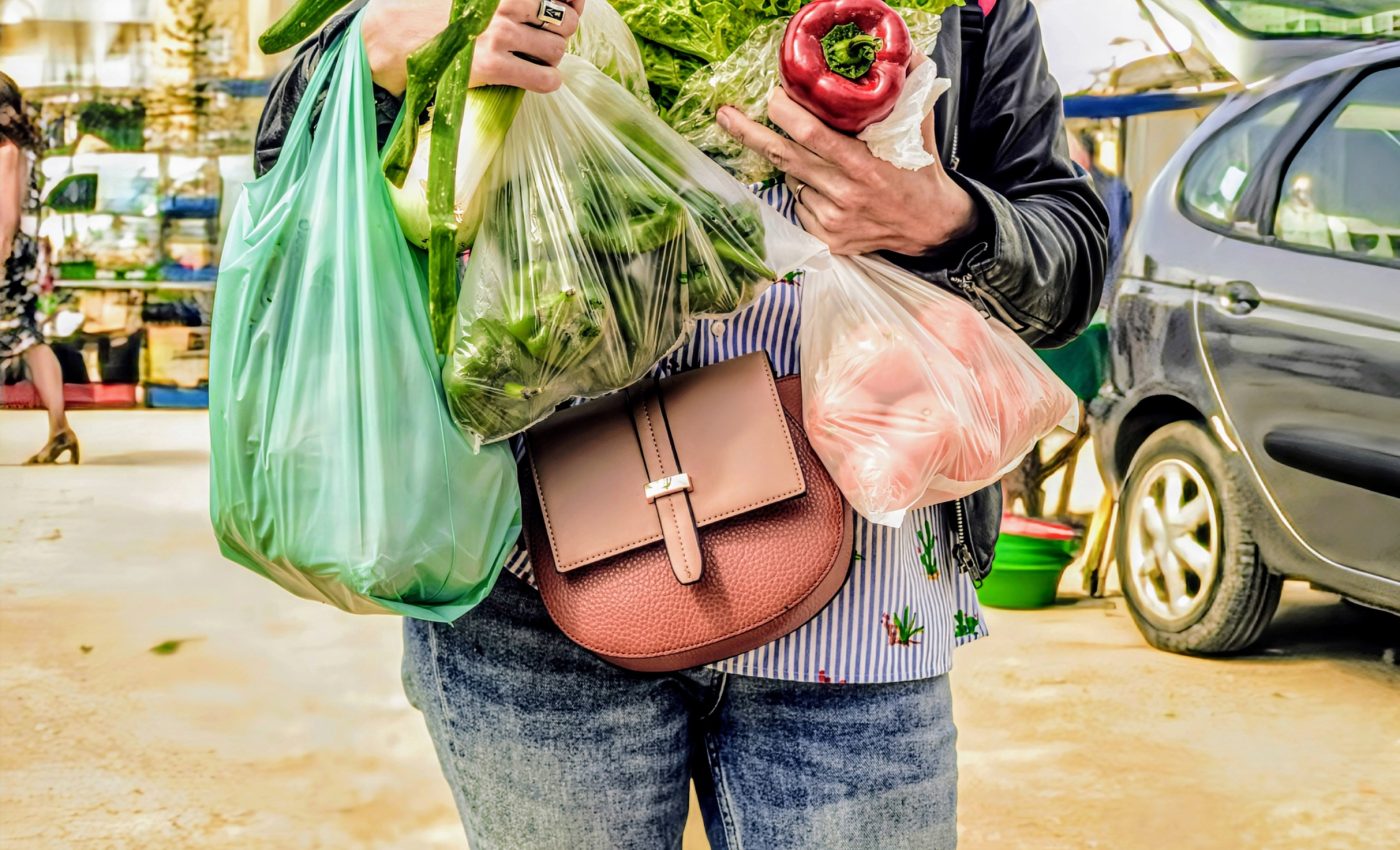
Environmental policies like plastic bag bans at grocery stores can often backfire
Regulations imposed to protect the environment can continue to influence behaviors even after they are repealed — and sometimes in ways that counteract the original goals of the policies.
This is the conclusion of a study co-authored by University of California, Riverside (UCR) marketing professor Hai Che.
The researchers examined policies aimed at reducing the use of single-use plastic bags in Austin and Dallas, Texas.
Behavioral changes after plastic bag ban
Significantly, the study revealed that the behaviors prompted by the plastic bag regulations persisted even after the rules were no longer in place.
However, some of these lingering impacts were not beneficial to the environment.
Che and his co-authors discovered an increase in sales of plastic trash bags after the cities prohibited stores from giving away free plastic bags for carrying groceries.
They quantified this by analyzing barcode scanner data on consumer purchases.
Unintended increase in plastic consumption
“We were hoping for positive spillover effects, like customers will be more environmentally conscious and consume less one-time use plastic or paper products,” said Che, an associate professor at UCR’s School of Business.
“But that’s not what happened in the data. People wound up buying more plastic.” He added that customers had been repurposing the free grocery bags as liners for household trash bins.
What’s the big deal about plastic bags?
Plastic bag use by grocery stores has a major environmental impact. These bags often end up as litter in our streets, parks, and especially in waterways, where they can take hundreds of years to break down.
Wildlife mistake them for food, leading to ingestion that can harm or even kill animals like sea turtles, birds, and marine life.
Additionally, producing plastic bags relies heavily on fossil fuels, contributing to greenhouse gas emissions and climate change.
The sheer volume of single-use plastic bags also overwhelms recycling systems, making it difficult to manage waste effectively and increasing pollution levels.
Beyond the environment, plastic bags from grocery stores influence consumer behavior and community cleanliness.
Many people rely on these bags for their convenience, but their widespread use encourages a throwaway culture that overlooks the importance of sustainability.
Positive changes in consumer habits
Despite the unintended increase in plastic bag purchases, the bag rules likely changed consumer behavior in positive ways as well.
People might have gotten into the habit of using reusable canvas or burlap bags for everyday shopping, although such data wasn’t available to the researchers.
The study also found that the longer a policy is in place, the longer the behaviors it encourages linger after the policy is repealed.
Ban on free plastic bags
In Dallas, the City Council imposed a five-cent fee for single-use bags for five months in 2015 before repealing it due to lawsuits from plastic bag manufacturers.
When free bags became available again, plastic bag sales initially declined sharply but returned to pre-policy levels after 13 months.
The Austin City Council banned single-use carryout bags in 2013, and the policy remained in place for five years until 2018 when the Texas Supreme Court struck down such bans statewide.
After the repeal, the increase in plastic bag purchases declined gradually and did not revert to the pre-policy baseline even after 18 months, which was the end of the researchers’ analysis period. In fact, the carryover effect remained 38.6% above the baseline at the end of the study.
Analyzing the environmental impact
To evaluate the overall environmental impact, the research team conducted a “break-even analysis” to determine if the plastic bag policies ultimately reduced plastic waste despite the negative spillover effects.
They calculated how many fewer single-use grocery bags consumers would need to use to offset the additional trash bags purchased due to the policies.
The analysis revealed that in Dallas, consumers would need to use one less grocery bag every seven trips, while in Austin, it would be one less bag every five trips to break even in terms of environmental impact.
“Interestingly, even a slight reduction in grocery bag use can offset the increased plastic consumption from trash bags. This suggests that these policies might still benefit the environment overall, even when repealed,” Che said.
Broader implications for environmental policies
The study contributes to a growing body of knowledge on the unintended consequences of environmental policies and offers insights applicable beyond plastic bag usage.
“While our study focused on plastic bags, similar spillover effects have been documented in policies targeting sugary drinks, energy efficiency, and health incentives,” Che said.
“In each case, behaviors that weren’t directly targeted by the policy – like purchasing more sugary snacks when soda is taxed – can offset or even undermine the policy’s primary goals.”
This research highlights the complexity of designing environmental regulations that achieve their intended outcomes without unintended side effects.
It underscores the importance of considering how policies might influence a range of consumer behaviors, both directly and indirectly, to ensure that environmental goals are met effectively.
The study is published in the Journal of Marketing Research.
—–
Like what you read? Subscribe to our newsletter for engaging articles, exclusive content, and the latest updates.
Check us out on EarthSnap, a free app brought to you by Eric Ralls and Earth.com.
—–













